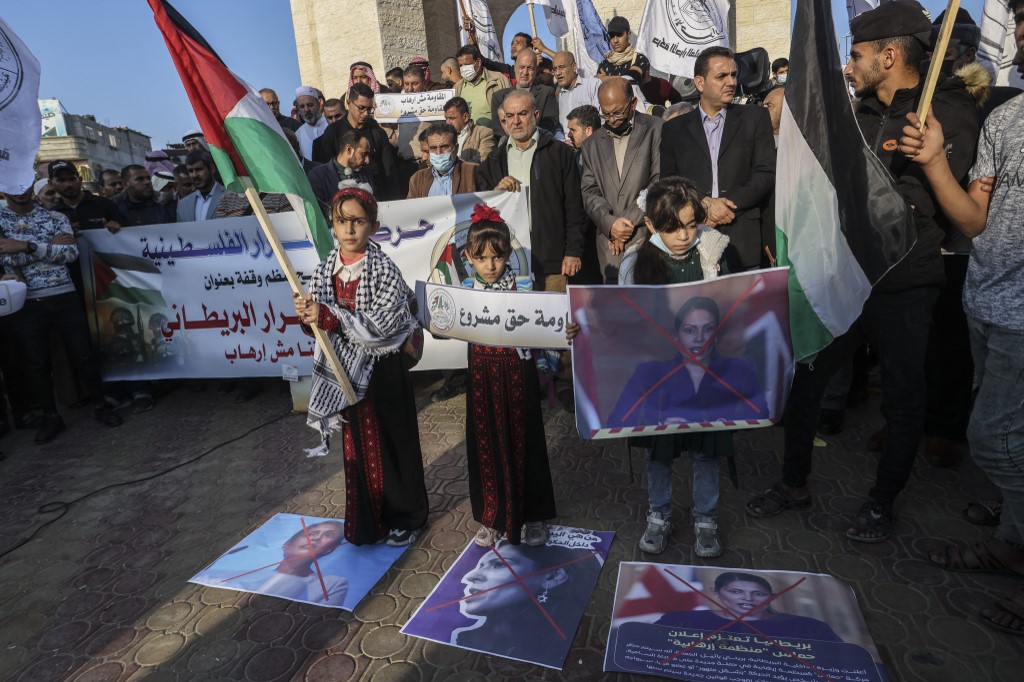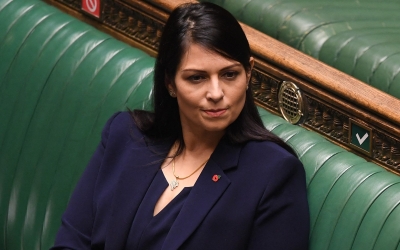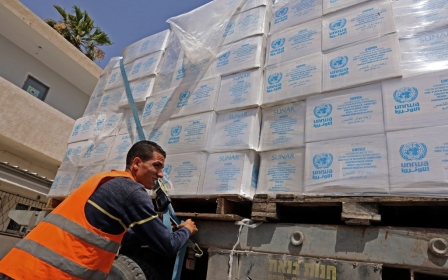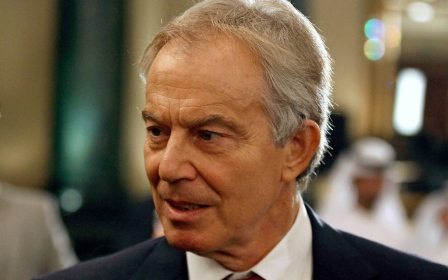Israel-Palestine: Proscribing Hamas only guarantees more violence
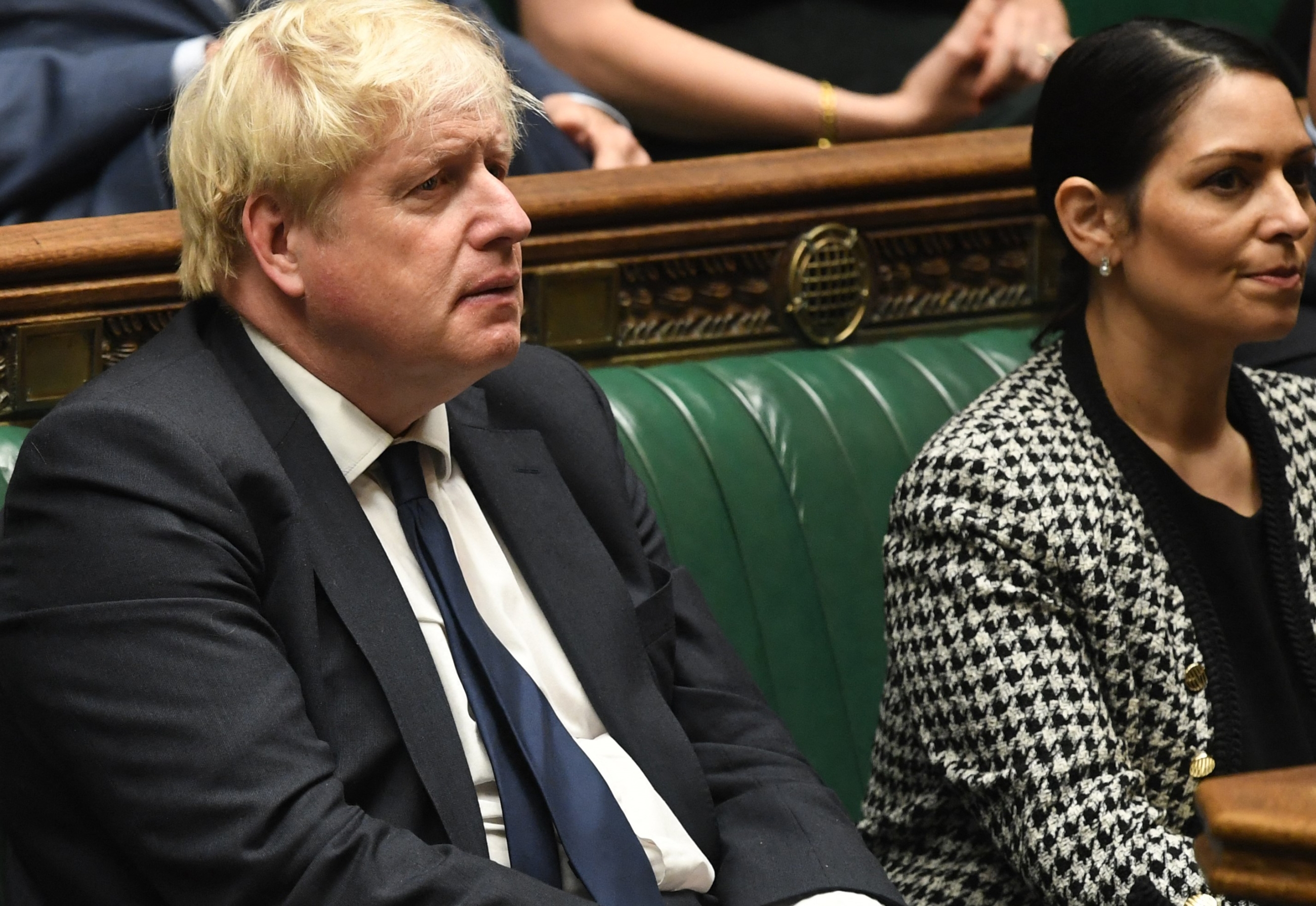
The UK parliament’s feeble examination of the case for the proscription of the whole of Hamas - the majority party in the Palestinian Legislative Council, and the de facto administration of nearly two million people in the besieged enclave of Gaza - was a personal and institutional nadir in the cause of justice for the Palestinian people.
The Palestinian people have been on the wrong end of history for over a century, and the accumulated case of injustice to them, both individually and collectively, is now morally and legally overwhelming.
The Palestinian people have been on the wrong end of history for over a century, and the accumulated case of injustice to them is now morally and legally overwhelming
Contrast the action against Hamas with our approach to Israel. The laws of armed conflict are governed by the Geneva Conventions of 1949, the fourth of which affords protection to civilians, including in occupied territories. Israel ratified the conventions in 1951, and after the Six-Day War of 1967 found itself in occupation of new territory by conquest. You are simply not allowed to occupy someone else’s territory, then expel civilians from it, and then settle it with your own people. The reasons that this is universally forbidden are obvious, with their roots in the post-Second World War settlement.
The UN’s founding charter “reaffirms the legitimacy of the struggle of peoples for independence, territorial integrity, national unity and liberation from colonial domination, apartheid and foreign occupation by all available means, including armed struggle”.
Painfully compromised
New MEE newsletter: Jerusalem Dispatch
Sign up to get the latest insights and analysis on Israel-Palestine, alongside Turkey Unpacked and other MEE newsletters
Whatever case you can make for it, and despite any potential legitimacy under international law, lethal violence hurts and corrupts the instigator as well as the victim - as all will condemn the killing of innocent people. However lofty you believe your principles, they are likely to be painfully compromised.

Hamas’s use of violence as a political tool has been both short-sighted and counter-productive. It has reinforced the narrative used by Israel since its founding about the threat Israel, Israelis and Jews face globally. It also weakens sympathies for the Palestinian cause. The violence also leads to the Palestinian people paying a very high price for the moral and legal undermining of their cause, with no advance in their position.
Both sides have paid in civilian deaths, but it’s far from equal. According to the Israeli Ministry of Foreign Affairs, 38 Israeli citizens have been killed by Hamas’s indiscriminate and unguided rocket attacks since 2000. On the other hand, the UN’s Office for the Coordination of Humanitarian Affairs (OCHA) estimates that 5,983 Palestinian civilians have been killed between 2008-2020 as a result of Israeli air strikes, with an additional 131,000 injured.
With an annual military budget of $17.95bn in 2021, and an additional $3.8bn given by the US in military aid annually, Israel has one of the world’s most advanced armed forces, with widespread access to sophisticated targeting systems. Yet the Palestinian civilian casualty figures confirm that even with Israel's much greater capacity than its opponents to target armed fighters, its actions are far from proportionate - another law of conflict ignored.
We have not proscribed the Israeli army - nor have we held to account any Israeli official involved in the indiscriminate use of artillery. The UK has voted for numerous UN resolutions but, along with much of the rest of the world, has done nothing as a consequence.
As a serious war crime by an accountable state (Israel) has drawn no effective sanction in over half a century, it’s not difficult to put oneself in the position of an occupied or displaced Palestinian, or peoples inclined to be sympathetic to them - such as fellow Arabic speakers or co-religionists - and understand why they see the most egregious case of international double standards.
Hamas ban a 'smokescreen'
This also helps explain the widespread sympathy for the plight of the Palestinian people in western liberal nations seen as those most responsible for the double standards. And despite the centuries of oppression by their host countries culminating in the greatest crime in human history, many in Jewish communities around the world share this concern about the relative injustice, not least in Israel itself.
We accommodated the shading between Sinn Fein, the political wing of the Irish republican movement, and the IRA, its paramilitary wing – it enabled support for the republican position to be expressed at the ballot box
The official reason for the total proscription of Hamas - an inability to differentiate between the political and military parts of the movement - is a smokescreen. In the UK, for example, we accommodated the shading between Sinn Fein, the political wing of the Irish republican movement, while we were in open conflict with the IRA, its paramilitary wing, as this enabled popular support for the republican position to be expressed at the ballot box.
Such an accommodation helped undermine the case that violent resistance was the only option, and eventually led to a negotiated settlement that brought along most of those actively engaged in or supporting violent resistance.
So in Israel, while the state remains unsanctioned for an occupation in grave violation of international law, the proscription of the whole of Hamas can only make the prospect of any negotiated peace settlement more remote.
In its governance of Gaza, Hamas is responsible for the security of its population of two million. If it had no military wing, the security vacuum would quickly be filled by even less scrupulous organisations, such as Islamic Jihad or Islamic State.
Oslo Accords
So, how to understand the UK's move to ban Hamas in its entirety?
Along with the US, the UK has become incapable of judging Israel's actions using independent evidence and set against the values we claim to hold. The part of the Israeli polity that now holds control does not want to face up to addressing a century and more of injustice between Israelis and Palestinians.
If the prospect of a negotiated settlement can be put off, so much the better for Israel. Disrupting the creation of a unified Palestinian negotiating position has become a central feature of Israeli policy.
The Oslo Accords of 1993 and 1995, signed by Israeli Prime Minister Yitzhak Rabin and PLO Chairman Yasser Arafat, brought the prospect of peace closer than ever. But the 1995 assassination of Rabin by an Israeli ultranationalist, the bus bombings carried out in Israel by Hamas, the separation barrier and the ensuing economic failure of Oslo have all played their part in the collapse of the agreement.
Putting Hamas beyond the pale keeps the prospect of a negotiated settlement unlikely, if not impossible. Keeping Palestinian representation in disputatious flux was, after all, part of the purpose in the support given by Israel to the creation of Hamas in the first place. This proscription is all of a piece.
Broken promises
Just over 100 years ago, in 1917, the UK government issued the Balfour Declaration, which, while aligning the UK with the objective of a safe homeland for Jews, recognised the rights of people already in Palestine.
We have delivered on the first half of that declaration, yet the second half is undelivered and largely forgotten: “It being clearly understood that nothing shall be done which may prejudice the civil and religious rights of existing non-Jewish communities in Palestine, or the rights and political status enjoyed by Jews in any other country.”
It is evident that those existing non-Jewish communities have been prejudiced. Palestinian citizens of Israel face discrimination and racist abuse. Palestinians in the Gaza Strip live in what has frequently been described as the world’s "largest open-air prison". Palestinians in the occupied West Bank face life under a modern apartheid - tried for civil crimes in Israeli military courts, where the rights of defendants are minimal, with a 99.74 per cent conviction rate.
The injustices that continue to exist as a result of broken British promises place a special onus on us to help solve this crisis. However, in order to assist, we must be able to talk to all stakeholders - and that includes the political wing of Hamas. If we are to dissuade them from the further use of force, we must engage them in dialogue and provide them with other recourses through which to resist the egregious breaches of international law that they face.
The proscription of Hamas will only hurt more innocents. It will limit the ability and willingness of British nationals and NGOs to conduct humanitarian work in the Gaza Strip. It will constrain our ability to engage with Hamas's political leaders to help find a route away from violence driven by despair. It will make the case to turn to self-defeating violence stronger among those vulnerable to the siren voices calling them there, as the injustice grows and gross western liberal double standards get worse, not better.
We must uphold the law and make it the vehicle by which we address this terrible imbalance of justice. The legal rights of Palestinians are just as important as the legal rights of Israelis or Britons.
Earlier this year, I helped found the International Centre of Justice for Palestinians, in an effort to better coordinate legal work in jurisdictions around the world to promote and protect Palestinian rights through the law. We can demonstrate to Palestinians that there are other ways to resist, that do not involve killing and maiming the innocent, but grow the legal and moral strength of the Palestinian position.
If the UK doesn’t wake up to the threat our double standards pose to the rules-based system we fought so hard to create, we will rue the day we abandoned our principles. What will global Britain be for then?
The views expressed in this article belong to the author and do not necessarily reflect the editorial policy of Middle East Eye.
Middle East Eye delivers independent and unrivalled coverage and analysis of the Middle East, North Africa and beyond. To learn more about republishing this content and the associated fees, please fill out this form. More about MEE can be found here.



